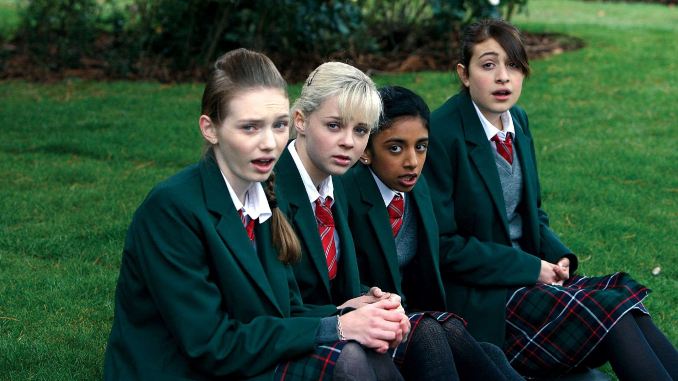Gurinder Chadha’s Intense Female Desire

Do you remember what it felt like to steal glances of your middle school crush in the halls? Or the angst that washed over you as a high school senior daydreaming about getting out into the world? What about the fuzzy sensation in your stomach when you floated into your bedroom after that really great first date and wanted nothing more but to be immediately back in their presence? Longing is ridiculously bittersweet. It’s agonizing and exhilarating all at the same time. Gurinder Chadha has made a career out of capturing this fevered air and bottling it into 110-minute motion pictures.
Through the decades, the British writer/director has worn her heart on her sleeve in the name of creating works that center female longing and desire, particularly through a multicultural lens. From her smash hit Bend It Like Beckham to her four-storied drama What’s Cooking?, Chadha has approached the yearnings of her female protagonists with sincerity and compassion. In particular, two of her movies from the late ‘00s and early ‘10s, Angus, Thongs and Perfect Snogging and It’s a Wonderful Afterlife, relish the beauty and dangers of intense female fervor.
In 2008’s Angus, Thongs and Perfect Snogging, Georgia Nicolson (Georgia Groome) is a spunky secondary school student on the cusp of her 15th birthday. Holding up the foundation of her green world are the pillars every developing person should have: A loving family, a tightknit friend group and a gorgeous Persian cat. But—as one often does at age 14—Georgia longs for more. According to her, her parents are too out of touch with her time, her face and body are offensive and she’s hopelessly inexperienced in the subjects of physical touch and romance. When a pair of dreamy fraternal twins move into her sleepy seaside town, Georgia turns her life upside down in pursuit of sensitive bass player Robbie (baby-faced Aaron Taylor-Johnson). Upon discovering that Robbie is paired up with Lindsay (Kimberley Nixon), the film’s blonde, modelesque antagonist, Georgia springs into action. Unfortunately for her, the best schemes her tweenish mind can come up with include taking kissing lessons from a gawky underclassman who later becomes obsessed with her and attending one of Robbie’s gigs with a mate of his in an attempt to make him jealous.
If a coming-of-age film about an awkward teenage girl celebrating her birthday while fighting off an excessively eager freshman admirer and fawning over an out-of-her-league hunk with a beautiful but shallow girlfriend sounds familiar to you, it’s by design. Angus, Thongs and Perfect Snogging is adapted from Louise Rennison’s young adult novels Angus, Thongs and Full-Frontal Snogging and It’s OK, I’m Wearing Really Big Knickers. When Chadha was brought on as a screenwriter for the project, the script had originally been adapted by two American men:
I read the script and thought how weird, this is a sort of L.A. male’s version of an English girl’s childhood and then I read the books and I thought wow, there is something here that relates to me growing up that I hadn’t seen in the script…Then it clicked that it should be like Sixteen Candles.
In Angus, Thongs and Perfect Snogging, Chadha takes the pastel glitz of ‘80s John Hughes movies and runs wild. Her British Samantha Baker sleeps in a peach-colored bedroom within a cotton-candy-pink house, located inside a pastel rainbow neighborhood. Her blown-out skies are so bright that they are almost white. Her intimate moments are wrapped in a warm, reddish filter. And when she finds herself near Eastbourne Pier, the calm sea provides a delightful baby blue backdrop for her to bloom. The town becomes a cushiony candyland where she can dream and explore her newfound desires with safety and reassurance. This pale palette reflects Georgia’s teenage lust. It’s new. It’s fleeting. It’s innocent, even. She’s longing for more adult experiences, but approaching them with a naivety and childishness that only this delicate age can offer. Where society tends to belittle teen girls for crushing too hard and obsessing over cute boys in bands, Chadha celebrates it through her use of soft color.
-

-

-

-

-

-

-

-

-

-

-

-

-

-

-

-

-

-

-

-

-

-

-

-

-

-

-

-

-

-

-

-

-

-

-

-

-

-

-

-








































